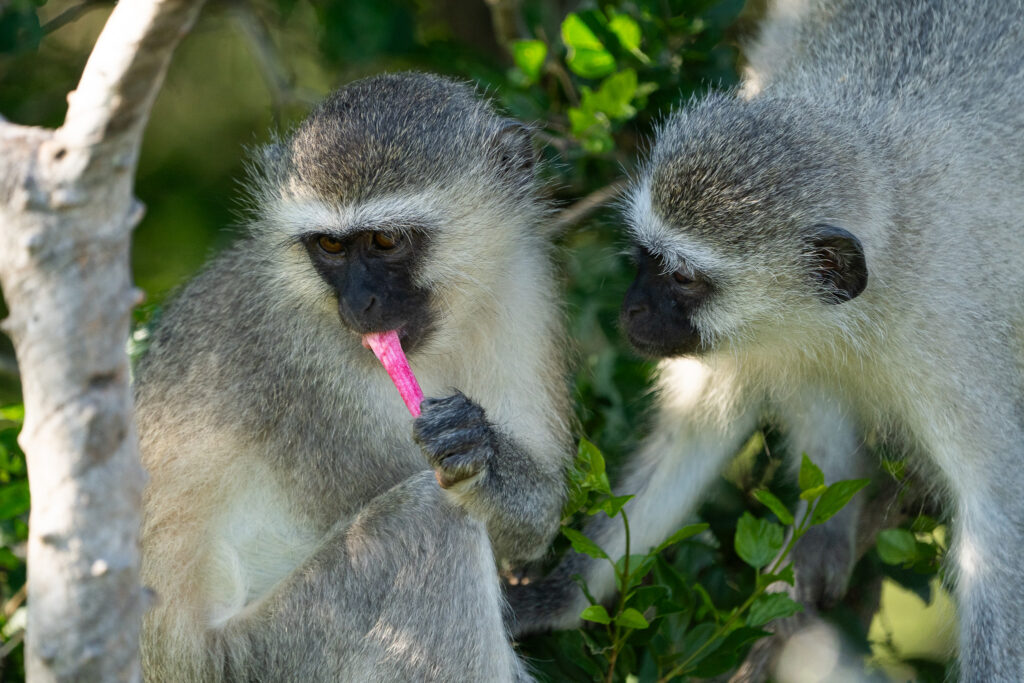Background
Social learning, defined as learning from others, plays a significant role in the appearance and development of cultures and traditions in the animal kingdom, particularly amongst non-human primates. Previous studies have assessed different social learning strategies in vervet monkeys in the context of food traditions transmission, generally using experimental set ups with abundant and/or conspicuous food sources. Such studies have, for example, showed that vervet monkeys tend to observe and learn particularly from higher ranked individuals. However, how individuals learn from each other in a natural context, where food sources are often scarce and sparse, is yet to be fully understood.

On the other hand, saliva sampling is a method that is commonly used in animal science to collect valuable samples that can be used in epidemiological, hormonal or behavioural genetic studies. Obtaining such samples can be challenging, and a common way to do so is through invasive sampling techniques, by darting the sampled individuals for example. Appart from an obvious ethical limitation, invasive sampling comes with risks for both the researcher and the sampled individual, with an increased potential for zoonotic transmission. It also increases the risks of parasitic infection of the sampled individual due to the stress generated during darting. Finally, using non-invasive techniques opens the possibility to collect samples following directly important events, such as alarm events, births or conflicts and is thus extremely advantageous for hormonal studies. Surprisingly however, non-invasive saliva sampling has been very rarely done in wild primates, and never in wild vervet monkeys.
Aims
– The first aim was to understand how individuals learn from each other in the troop, innovating by using a scarce and discrete food source that aims to mimic natural conditions.
– The second aim consisted of implementing a new non-invasive saliva sampling technique for wild, habituated vervet monkeys while assessing the factors impacting sampling success for future studies.